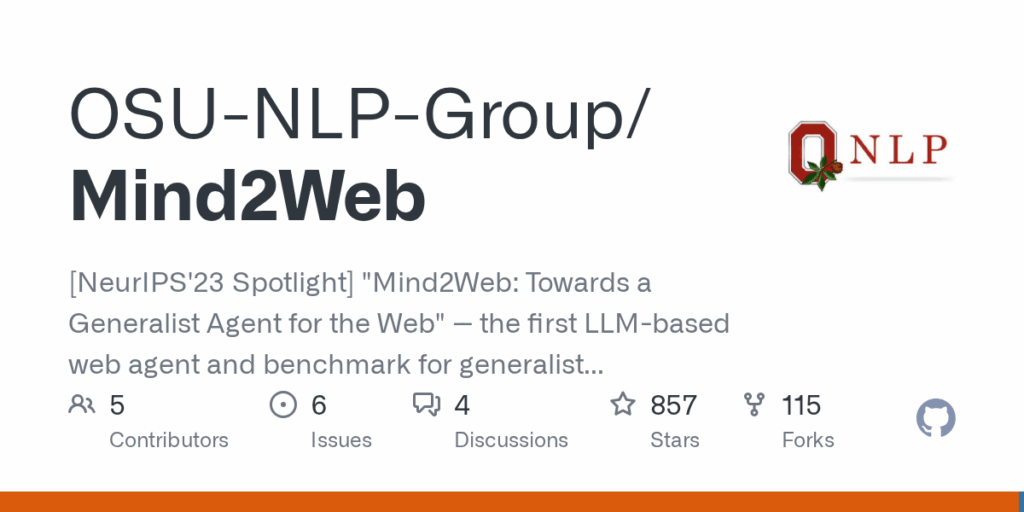Mind2Web
Basic Information
Mind2Web provides the dataset, code, and pretrained models used to develop and evaluate generalist web agents that follow language instructions to complete complex tasks on real websites. It is a research-focused repository that publishes a large, diverse benchmark of human-annotated tasks and action traces collected from real webpages, along with raw Playwright traces, HAR network captures, video recordings, DOM snapshots, and screenshots to support replay and analysis. The repo includes candidate generation and action prediction code, evaluation and fine-tuning scripts, example prompts for LLM-based action selection, and pointers to trained models on Huggingface. It is intended for researchers and developers who want to train, fine-tune, or benchmark models that perform web interactions, experiment with LLM or seq2seq approaches for element selection and action prediction, and reproduce results from the paper.








